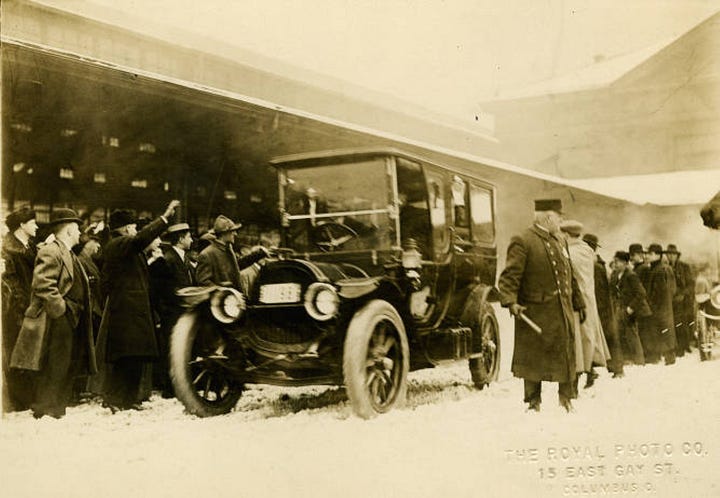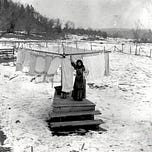To be a progressive.
It is February 21, 1912.
Theodore Roosevelt, the former president, is in Columbus, Ohio, to address delegates who are drafting a new state constitution.


In recent weeks, the public has learned that Roosevelt intends
to challenge the current president, William Howard Taft,
his chosen successor,
for the 1912 Republican presidential nomination at the party’s summer convention.

Taft has deviated from progressive principles, Roosevelt believes,
and Roosevelt’s candidacy,
which will culminate in an unsuccessful third-party bid,
is intended to return those guiding principles to the White House.


Roosevelt’s Columbus speech,
often called the “Charter of Democracy” speech,
makes those progressive principles plain.
The need to reassert them now is strong.

From the speech:
“I protest against any theory
that would make of the constitution
a means of thwarting
instead of securing
the absolute right of the people to rule themselves.

I believe in pure democracy.
With Lincoln, I hold that
“this country, with its institutions,
belongs to the people who inhabit it.”

We Progressives believe that the people have the right,
the power,
and the duty
to protect themselves and their own welfare;

that human rights are supreme over all other rights;
that wealth should be the servant,
not the master, of the people.

We believe that unless representative government
does absolutely represent the people,
it is not representative government at all.

We test the worth of men and all measures
by asking how they contribute to the welfare
of the men, women, and children
of whom this nation is composed.

We are engaged in one of the great battles
of the age-long contest
waged against privilege on behalf of the common welfare.

We hold it a prime duty of the people
to free our government
from the control of money in politics.”

*****
Progressives: stand firm.
Democracy permits no compromise in these principles.
******************************
I’ll see you tomorrow.
— Brenda












